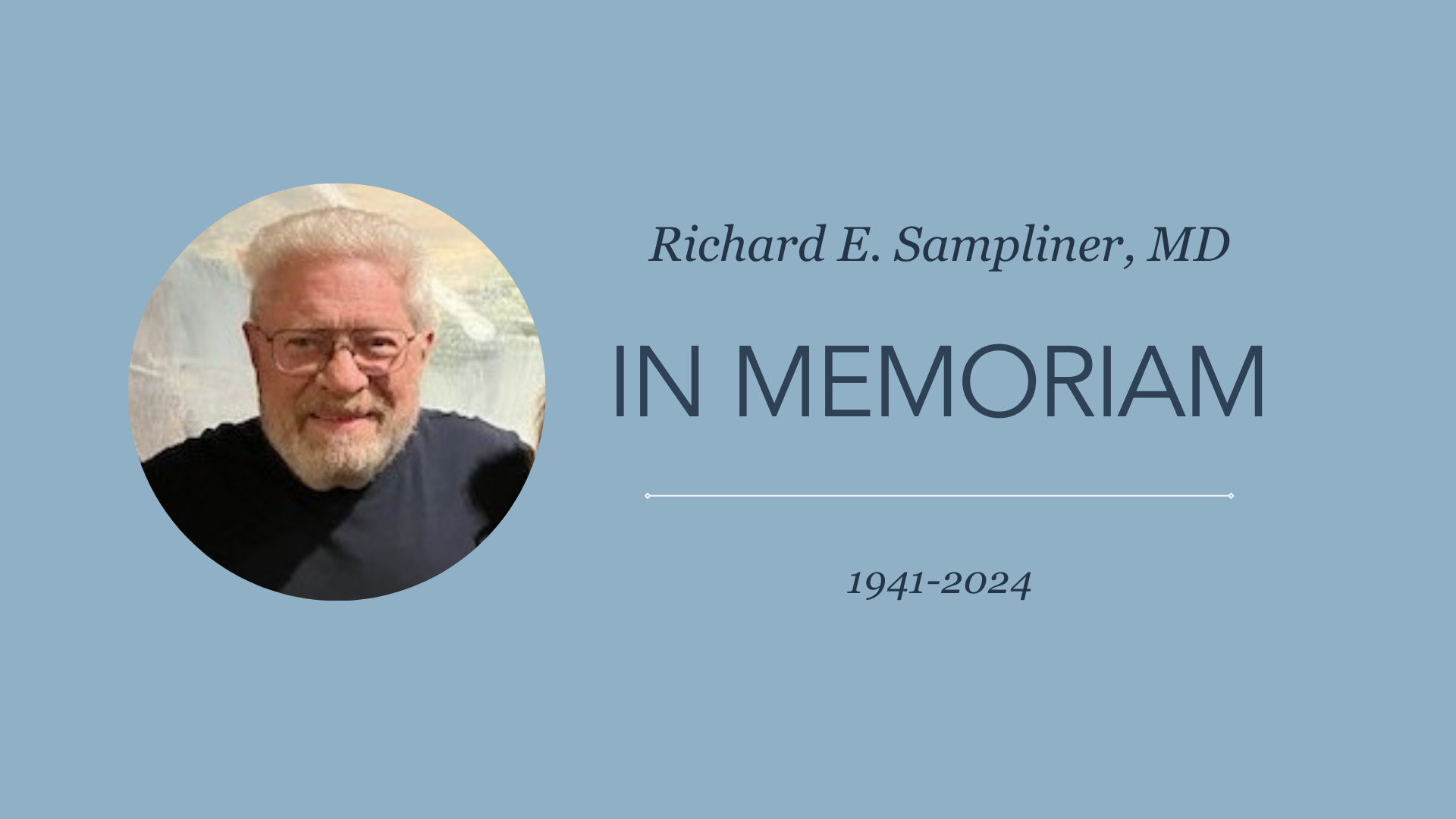Richard (Dick) E. Sampliner, MD, died on Saturday, Aug. 17, 2024. Dr. Sampliner was one of the most recognized leaders in our understanding of Barrett’s esophagus, and his work paved the way for our current approaches to management of Barrett’s with medical and endoscopic therapy.
With all of his accomplishments, by far the one he was most proud of was his family: his wife, Linda, of 58 years, his sons, Rob and Steve, and grandson, Gabe. His marriage was one of love, adventure, laughter and tears and a true sense of shared partnership.
Dr. Sampliner’s contribution to the field of gastroenterology endures. He was known and respected internationally. His pioneering work in eradicating pre-malignant lesions of the esophagus revolutionized the prevention and treatment of soft tissue cancers throughout the body. He was honored with many awards throughout his career. He considered the success of his trainees his most important professional accomplishment.
Colleagues, family, friends and neighbors will remember him for his zany sense of humor, his dedication to his craft, his exceptional brilliance, his unfailing curiosity and his profound love for his family.












